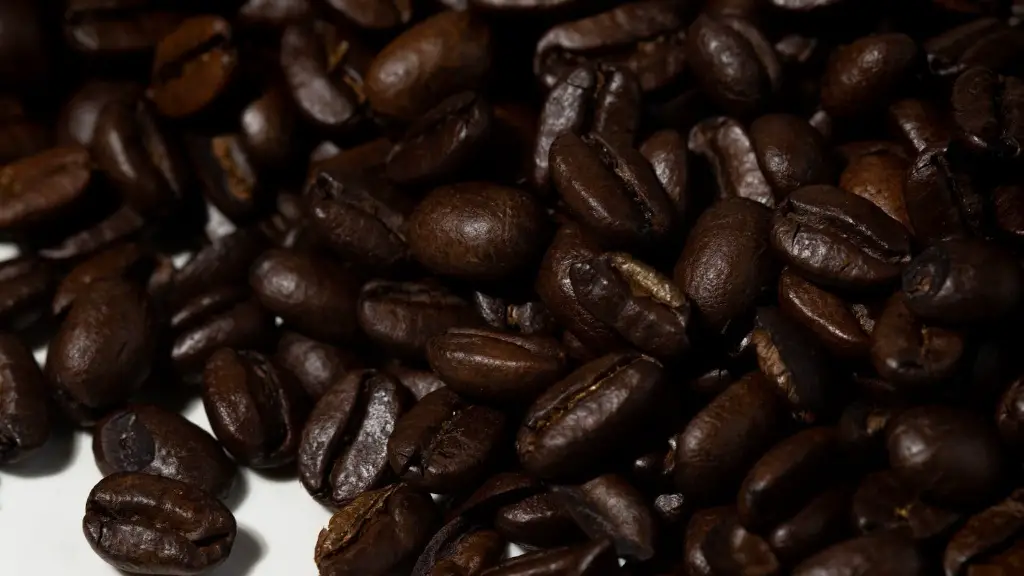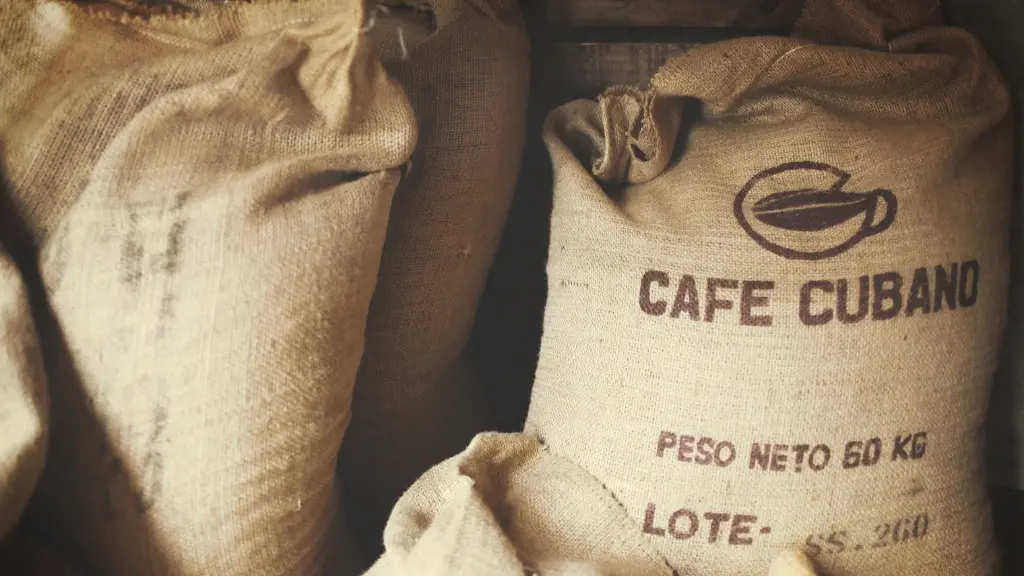The Benefits of Not Drinking Coffee During Pregnancy
Pregnant women have to be conscious of what they eat and drink, as their health, and the health of their baby, depend on it. Coffee certainly has its benefits, as it has been associated with positive effects on mental health and cognitive abilities. But high levels of caffeine, particularly during pregnancy, can have negative effects on the mother and her unborn baby.
Coffee contains FDA-regulated levels of caffeine, ranging from 40-180 mg per eight-ounce cup. According to the American College of Obstetrics and Gynecology, pregnant women should not consume more than 200-300 mg of caffeine or the equivalent of two cups of coffee per day. This can vary from woman to woman, so it is important to consult with a doctor or health professional before engaging in any kind of caffeine consumption.
The adverse side effects of increased caffeine consumption during pregnancy include increased risk of miscarriage, low birth weights, insomnia, elevated heart rate, and gestational diabetes. Increased consumption has also been linked to an increased risk of stillbirth. Additionally, some research has suggested that too much caffeine can lead to disruption in the development of the baby’s brain, leading to cognitive and behavioral issues.
The effects of caffeine on a developing fetus depend on the amount of caffeine consumed and the gestational age at which the caffeine was consumed. In general, pregnant women should try to limit their caffeine intake as much as possible. Excessive caffeine consumption has been linked to a variety of risks, so it is important for pregnant women to eat and drink in moderation in order to protect both themselves and their unborn baby.
There are a number of ways to cut back on caffeine consumption during pregnancy. Eliminating coffee completely may seem drastic, but it is important to remember that even minimal amounts of caffeine can have substantial effects on an unborn fetus. Decaffeinated coffee is also an option, as it contains small amounts of caffeine but can still provide the desired effects.
Beyond coffee, pregnant women can look for other ways to get their much-needed energy boost. Herbal teas, soups, smoothies, and juices can all provide a natural boost of energy. Additionally, there are a variety of healthy snack options that are not only energizing but also packed with vitamins and minerals.
Making the Healthy Choice
For pregnant women, the decision to avoid caffeine altogether is difficult, but it can be beneficial for both mother and baby. The key is to make sure that every meal and snack includes a healthy option, as this can help prevent unreasonable cravings. Additionally, pregnant women should pay close attention to food labels, as they often contain hidden sources of caffeine that can be unhealthy for both mother and baby.
It is also important to remember that caffeine consumption during pregnancy should always be approved by a healthcare provider. Even if a pregnant woman only consumes a single cup of coffee per day, it is still important that she consults her doctor to ensure that her individual health needs are being met.
Although drinking coffee during pregnancy has its own set of risks, there are plenty of other ways for a pregnant woman to achieve the desired energizing effect. Natural sources of energy, such as herbal teas, soups, smoothies and juices can all provide beneficial effects, without the negative side effects associated with caffeine.
Replacement Drinks During Pregnancy
Many pregnant women find it difficult to give up their morning cup of coffee or afternoon tea, as caffeine can provide a much needed energy boost. Fortunately, there are many replacement drinks that can provide the desired effect, without the same health risks associated with caffeine.
Herbal teas can provide a delicious alternative to caffeinated beverages. Not only are they full of flavor, but many types of herbal tea have been found to have various health benefits. Additionally, juices, smoothies, and soups can all provide additional energy without the risks associated with caffeine.
When shopping for replacement drinks, it is important to read labels in order to know exactly what the ingredients are. Spice drinks, for example, may contain caffeine and should be avoided in order to reduce the risk of any potential health concerns.
Replacement drinks can be a great way to stay energized during pregnancy without having to rely on caffeine. Not only can they provide an energy boost, but they can also be an excellent source of nutrients and vitamins. Additionally, many of these drinks are inexpensive and widely available, making them a convenient and affordable alternative to coffee or tea.
Changing Habits During Pregnancy
For many pregnant women, cutting back on caffeine can be difficult and feel like a huge lifestyle change. However, it is important to remember that this decision is made in the best interest of both mother and baby. Understanding the potential risks, and making the necessary lifestyle changes can help all parties involved.
The decision of whether or not to consume caffeine during pregnancy is a complex one and should be discussed with a doctor or health professional. It is important for pregnant women to make healthy choices in order to reduce the risks associated with caffeine consumption.
Making the decision to cut back on or eliminate caffeine from a diet is a process and does not happen overnight. It may require a few weeks or months of effort, but in the end, the positive results make it worth the effort.
The decision to have a healthy pregnancy should be taken seriously. Eliminating caffeine consumption altogether, or limiting it to a minimum, is one way to ensure that a safe and healthy child will be born.
Concerns Over Moderation
Many pregnant women struggle with the idea of moderation when it comes to caffeine consumption during pregnancy. Moderate consumption is defined as 200-300 mg per day, or the equivalent of one cup of coffee. Some experts debate whether this level of consumption is safe and the general consensus is that pregnant women should wait to engage in high levels of caffeine consumption until after the baby is born.
It is important for pregnant women to remember that not all caffeine is created equal. Coffee, for example, is much more potent than tea and can contain three times more caffeine than other popular sources such as soda and chocolate. Moreover, coffee contains additional compounds that are not present in other sources, which can lead to increased health risks.
For pregnant women, moderation can prove to be tricky. The consensus is to either avoid caffeine altogether or ensure that consumption is kept at a minimal level. This means limiting consumption to one cup of coffee per day or the equivalent in a different form of caffeine.
Consequences of Excessive Caffeine Consumption
High levels of caffeine consumption can prove to be detrimental to the health of both mother and baby. High levels of caffeine can lead to an increased risk of miscarriage, low birth weights, insomnia, elevated heart rate, and gestational diabetes.
In addition, some researchers suggest that excessive caffeine can lead to disruptions in the development of the baby’s brain, leading to cognitive and behavioral issues. Furthermore, too much caffeine consumption has been linked to an increased risk of stillbirth.
It is important to remember that the effects of caffeine consumption depend on the amount consumed, as well as the gestational age at which the caffeine was consumed. Pregnant women should always consult their doctor or health professional before engaging in any kind of caffeine consumption.
Overall, caffeine consumption during pregnancy should be monitored and limited in order to reduce the risk of any potential health concerns. Pregnant women should always look for healthier alternatives in order to provide the necessary energy boost without the health risks associated with caffeine.





